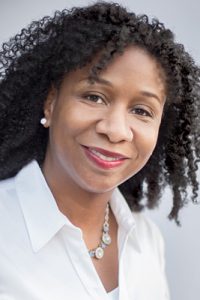Roundtable: Intersectionality, Part 2
Jeffrey Ford
This idea is not exactly reinventing the wheel, but I do have two fast thoughts, before going out to dinner (or out to lunch: that’s two of me): 1) “intersectionality” is a good but not a new description of the experience of urban existence, which is the most important and most valuable (and overall the least energy-consuming per capita) form of existence we can live on this planet, unless we are exceedingly privileged; and 2) that it is always good to understand more, but that calving ourselves into Aspects, though it may make us feel like Virtuals before the fact, is a bit, dare one say it, utopian: when I think of intersectionality, I think of city planners not understanding the action…..
I think to refer to this process as Utopian is to miss the point. That would only enter into it if you expected that the use of this system was supposed to render absolute comprehension at some point. That’s impossible, of course. It doesn’t necessarily have to be all or nothing, though. It could be viewed as a useful method of gaining insight, employed over time, its revelations incorporated into one’s world view as one proceeds. The increase in awareness is an evolution not a destination. This strikes me as similar to Emerson’s approach to Transcendentalism. It’s a path of discovery.
John Clute
That wasn’t the schwerpunkt of my meaning-ramble, suh. Use the term nonce- utopian to hint pretty well at what you say here; but also to hint, very mildly, that to designate a gaze, however open-eyed, is to designate an agenda, however nonce: certainly this is in line with anything I’ve ever learned or experienced about normalization, functional amnesia, how the brain remembers in order to survive, how we edit, how we are surprised by joy for as long as a second, said Leonard Cohen.
But when I hear the word Transcendentalism, I’m with Nancy Reagan.
Karen Joy Fowler
Everybody knows, said Leonard Cohen. That now we’re getting to the difficult part. Intersectionality and agenda. Since I don’t even know what the word nonce means, nor have any background of any kind in literary theory, I will listen with interest to what others may say.
But I’m warning you, John, I’m having a t-shirt made even as we speak and in the best traditions of American politics the quote on it will be: ” I’m with Nancy Reagan — John Clute.”
Jeffrey Ford
“But when I hear the word Transcendentalism, I’m with Nancy Reagan.” John, does this mean you want to just say yes to Ronnie? : ) To employ agendas in discovery doesn’t necessarily mean that you need to buy into them. An agenda is a theoretical structure through which a list of items is addressed, thought about, etc. It’s a tool, not a rule. I’d think agendas should evolve as awareness does.
John Clute
Leonard also said, For as long as a second, I was in (something or other that meant heaven). By nonce I don’t mean anything more than short-term, for the moment. Dictionary might correct me.
O Karen, just say no to your heart on that one…….




Pingback:SF Tidbits for 1/18/12 - SF Signal – A Speculative Fiction Blog